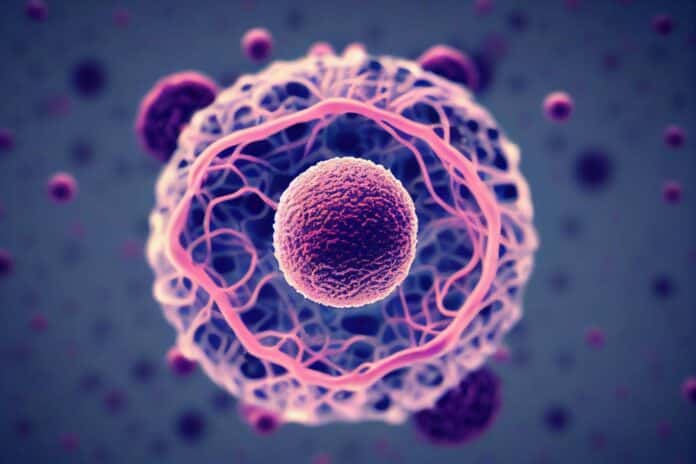Researchers at UC San Francisco (UCSF) and Northwestern Medicine may have discovered a way to improve engineered T cells by learning from cancer.
They studied mutations in cancerous T cells that cause lymphoma and identified one that made T cells extremely effective at fighting cancer. Adding this mutation to normal human T cells made them more than 100 times better at killing cancer cells without causing harm.
Currently, treatments that boost the immune system only work for certain blood and bone marrow cancers. However, the engineered T cells created by the researchers successfully killed tumors from skin, lung, and stomach cancers in mice. The team is now working on testing this new approach in humans.
Dr. Jaehyuk Choi, an associate professor of dermatology, biochemistry, and molecular genetics at Northwestern University Feinberg School of Medicine, said, “We used nature’s roadmap to make better T-cell therapies. The superpower that makes cancer cells so strong can be transferred into T cell therapies to make them powerful enough to eliminate what were once incurable cancers.”
Kole Roybal, a professor at UCSF, explained that cancer cells’ ability to adapt can boost T cells, helping them survive in harsh tumor conditions. This insight offers hope for better cancer treatments.
Developing effective immunotherapies for most cancers has been challenging because tumors create an environment that supports their growth, taking resources like oxygen and nutrients for themselves.
Sometimes, tumors even manipulate the body’s immune system to protect themselves. This makes it hard for regular T cells to fight cancer and weakens engineered T cells used in therapies as they struggle against the tumor’s defenses.
Roybal said, “For cell-based treatments to work under these conditions. We need to give healthy T cells abilities beyond what they can naturally achieve.”
The teams from Northwestern and UCSF tested 71 mutations from T cell lymphoma patients to see which could improve engineered T cell therapies in mice. After conducting thorough safety tests, they found one powerful and safe modification against cancer.
Choi, from Northwestern University, said their findings enable T cells to fight various cancers and outperform previous methods. These discoveries could improve treatments for many cancer types.
Choi added that “T cells have the potential to cure people with advanced cancer who have limited treatment options. Cell therapies, like this one, are living treatments that grow inside the patient and can provide long-lasting protection against cancer.”
Roybal, Choi, the Parker Institute for Cancer Immunotherapy, and Venrock are creating a new company called Moonlight Bio to develop their innovative method further. They aim to start testing cancer therapy on people in the coming years.
Roybal stated that they view this as just the beginning and believe there’s much to learn from nature about improving these cells to treat various diseases.
By leveraging the resilience and adaptability inherent in cancer cells, this study represents a significant stride toward developing more effective cancer treatments. Through innovative approaches that capitalize on nature’s mechanisms, researchers are poised to unleash the full therapeutic potential of engineered T cells, offering renewed hope for patients facing challenging diagnoses.
Journal reference:
- Garcia, J., Daniels, J., Lee, Y. et al. Naturally occurring T cell mutations enhance engineered T cell therapies. Nature. 10.1038/s41586-024-07018-7.
